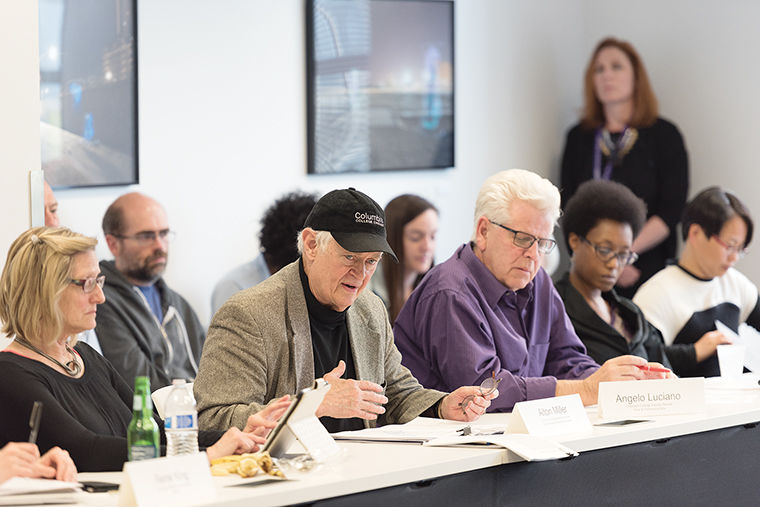Faculty Senate welcomes new members, approves end-of-year motions
Faculty Senate welcomes new members, approves end-of-year motions
May 9, 2016
In its last meeting of the semester on May 6, the Faculty Senate introduced its latest motions and approvals before introducing new members and open seats.
Before adjourning its 2015–2016 members to officially convene the 2016–2017 Faculty Senate, the group unanimously endorsed the college’s newly-proposed Universal Learning Outcomes outlined by the Strategic Plan implementation committee of the same name.
A statement read by Alton Miller, associate professor in the Communication and Media Innovation Department and head of the Academic Affairs Committee, asked the Senate to endorse the ULOs because they “articulate the range of competencies, skills, knowledge proficiencies, literacies and fluencies that all students will engage and derive from a Columbia College Chicago education.”
Miller also said there is importance in accepting the way the current outcomes are written and, as a Senate, not attempting to alter wording and respecting the ULO Committee’s process.
“[We must make] sure what we’re doing is a show of support as opposed to the opportunity to change any language…. There are going to be times when we’re casting votes that are essentially cheerleader votes,” Miller said.
Despite no opposition, associate professor in the Cinema Art + Science Department David Tarleton said it is “remiss” of the Senate’s responsibility to simply recommend the outcomes as “cheerleaders.”
“I don’t think it’s mutually exclusive to say it is our duty to [endorse], but at the same time, we’re respecting the process and our colleagues,” Tarleton said. “I reject the notion that we merely should be rubber-stamping these, but I don’t think we should be wordsmithing.”
Senate President Greg Foster-Rice said he is glad Tarleton brought up whether this is a “genuine” process—which Foster-Rice thinks it is—and brings up larger questions about what elements of the plan’s implementation need Senate endorsement or assessment.
“With the Strategic Plan, there are a lot of points that are going to be coming,” Foster-Rice said. “How much of that has to go through Faculty Senate and how much doesn’t? It seems clear that something curricularly foundational like the ULOs or Core Curriculum would have to come to Senate. Operational stuff will go out to other departments that aren’t academic; they’re operational.”
Following the ULO recommendation, the formation of a Document Audit Workgroup, was proposed by Joan Giroux, executive committee member and an associate chair in the Design Department.
The charge of the workgroup would be to “simplify and clarify language” and other similar review and updates of documents used by faculty, such as the college’s Statement of Policy on Academic Freedom, Faculty Status, Tenure, and Due Process, the Faculty Manual and the Academic Policy Review Manual.
“The sentiment and the sense of this Document Audit Workgroup is not necessarily to [do] all of that work, but to come up with a list of what work needs to be done so in the fall that can be passed off to the relevant committees,” Giroux said.
Giroux added that she, along with the college’s general counsel, Office of the Provost and others, began meeting in April, when the language was drafted and approved.
Foster-Rice added that the current executive committee has been hoping to begin this since last semester.
With unanimous approval, Giroux, along with workgroup members including Peter Carpenter, acting chair of the Dance Department and former Faculty Senate President, and Pegeen Quinn, associate provost of Academic Personnel, will begin meeting this summer and will present at the first Fall 2016 Semester meeting Aug. 26.
The 2015–2016 members whose two-year term ended were then dismissed to make room for still-eligible members and new members. Foster-Rice said several openings will be filled through nominations beginning next week.
Sarah Odishoo, an associate professor in the English Department and new 2016–2017 at-large senator, said she helped form an earlier rendition of the Senate five years ago. After stepping away so the group could start “fresh,” she returned.
“We are going through a period of adjustment, and that is an important time,” Odishoo said. “It might be good to be seeing a future at Columbia.”








